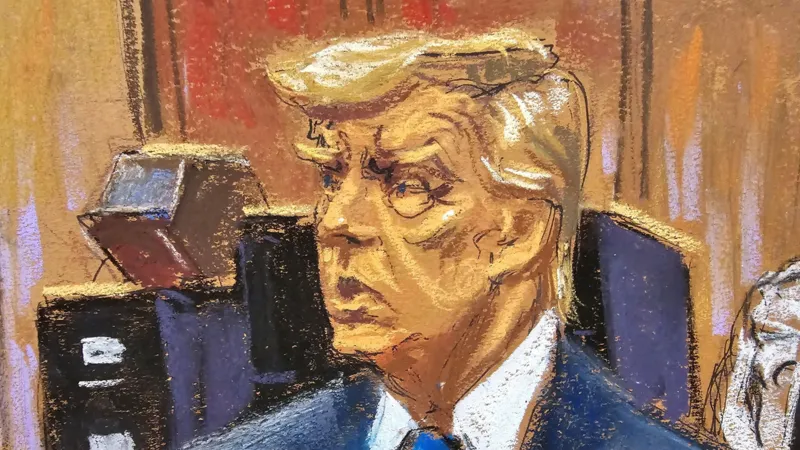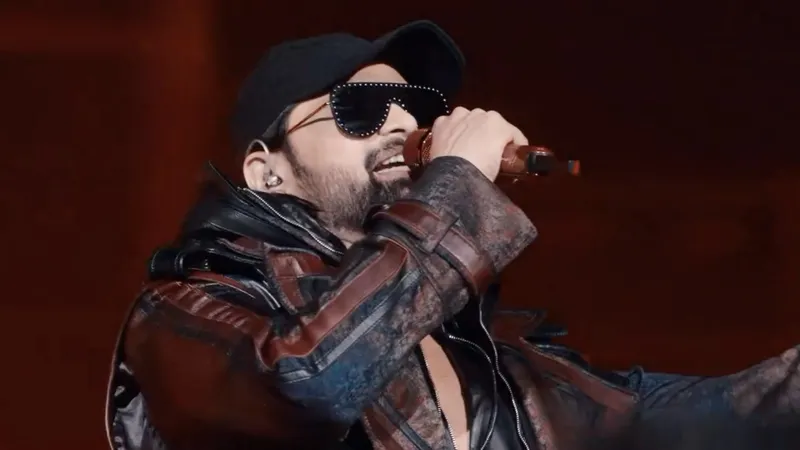Hush-money trial was Trump's to lose. Here’s why he did
A New York jury’s guilty verdict against Donald Trump may have shocked the general public – but some who watched the case closely weren’t surprised.

With the burden of proof on prosecutors, the case was Trump’s to lose. But his team’s lack of a counter-narrative and a flawed strategy to undercut the case’s weaknesses stymied the defence, lawyers and former prosecutors told the BBC.
And before they even walked into court, one factor already had set up a tough battle.
“The single biggest problem that the defence had in this case,” said Mitchell Epner, a New York civil litigator, “was that Donald Trump was their client.”
A lack of narrative
To convict Trump, the jury had to be certain he falsified his business records, and that he did so intending to conceal or commit a second crime.
The Manhattan District Attorney’s Office’s case went like this: With Trump’s approval, his former lawyer, Michael Cohen, paid adult film star Stormy Daniels $130,000 to stay silent about an alleged sexual encounter so as not to derail Trump’s 2016 campaign. Trump then approved a fraudulent scheme to disguise the reimbursement to Cohen as legal expenses to hide the hush money.
In doing so, he ran afoul of election rules, prosecutors said, which amounted to “election fraud, pure and simple.”
The prosecution then called 20 witnesses and offered scores of crucial documents, including cheques to Cohen bearing Trump’s signature.
But “the defence never had a story that the jury could accept,” said John Moscow, who spent 30 years working for the Manhattan DA.
While they did not have to disprove the prosecution’s case, giving the jury a plausible reason behind Trump’s reimbursement to Cohen, for example, would have helped, experts said.
During his final argument, Trump’s attorney Todd Blanche provided an alternate explanation for the fraudulent documents: that they were payments for actual work Michael Cohen did in 2017, and therefore recording them as legal expenses was not fraud.
The defence also argued that Trump paid Ms Daniels only to protect his family, not to defraud voters, but then the team never developed that argument, Mr Epner said.
“They never picked a lane, and because Donald Trump closed off every lane that could have been reasonably been picked,” said Mr Epner. “They tried to throw dust in the air and make the jurors confused.”
The prosecution used meticulous documentation to show falsified business records, but the evidence that Trump actually intended to commit or conceal that all-important second crime was “thin to nonexistent”, Randall Eliason, a professor at George Washington University Law School, told the BBC.
Trump’s team did not focus on hammering this weakness, though in his summation, Mr Blanche gave the jury a list of reasons for reasonable doubt. Instead, they argued that the central events of the case never happened, or that witnesses had lied.
But the jury may have found these claims were not supported by later evidence and testimony.
Mr Eliason said a more effective defence would have been: “Assume for the sake of argument all of this happened. The sex happened, the hush-money happened, and Trump knew about it. Fine. That’s not what the charges are. What’s the evidence of Trump’s actual intent and knowledge? That’s where the case falls short.’”
In Trump lawyer Susan Necheles’ cross-examination of Ms Daniels, she sought to portray the actress as a liar wanting money and fame for her story.
“It’s a surprise to no one that there was most likely a lot of pressure from the client to paint certain people as liars,” said Anna Cominsky, a professor at New York Law School. “That’s not necessarily the best defence strategy. Stormy Daniels didn’t have to be a liar for [the defence] to win.”
The Cohen factor
The defence’s best chance at winning was discrediting Cohen, a star witness.
Cohen certainly created plenty of ammunition over the years: guilty pleas for lying to Congress and other crimes, endless public statements bashing his former boss, and questions about whether he had lied to a judge.
Mr Blanche hammered these points. In his closing argument, he called Cohen the “GLOAT” - the “Greatest Liar of All Time”.
During the trial itself, he cast serious doubt on Cohen’s testimony that he had called Trump – who was using a bodyguard’s phone - about the hush money on 24 October 2016.
“I thought that was a huge win for them, potentially catching him in a flat out lie or misremembering,” Ms Cominsky said.
Reuters Michael Cohen in a courtroom sketch on the standReuters
Michael Cohen took the stand during the trial as the prosecution's star witness
But the defence also made some fumbles.
Mr Blanche's first real question to Cohen was a provocative one: “’You went on TikTok and called me a Crying Little Sh--’ didn't you?”
Cohen evenly responded, “Sounds like something I would say.”
Justice Juan Merchan admonished Mr Blanche in a sidebar. “Why are you making this about yourself?” he asked.
“That was an astoundingly bad moment,” Mr Epner said. “It was a showdown at high noon, and he got trounced.”
The defence called only one substantial witness, lawyer Robert Costello, to undercut some of Cohen’s claims.
But Mr Costello's testimony was contradicted by his own emails, and in an unusual and chaotic moment, a furious Justice Merchan cleared the courtroom so he could admonish Costello about his behaviour on the stand.
“The case is what it is.”
Not every lawyer, however, believed there was much the defence could do.
“I’m not sure they did anything wrong,” said Karen Agnifilo, who was the chief assistant district attorney at the Manhattan DA’s office until 2021. “The case is what it is."
The evidence linking Trump to the crime was strong, others said.
“People get convicted on evidence a great deal less secure than this,” Mr Moscow said.
Not every legal expert was convinced the prosecution’s legal prowess won the case, however.
Jed Sugarman, a professor at Boston University School of Law who said he identifies as politically progressive, thought the election fraud aspect was exaggerated for political effect, and that the underlying crimes warranting a felony charge were never clarified.
Prosecutors’ victory, he believed, came down to bringing the case in a liberal-leaning jurisdiction and selecting a favourable jury.
“Trump’s mistake,” Mr Sugarman said, “is doing crime-y stuff in Manhattan.”
-bbc







